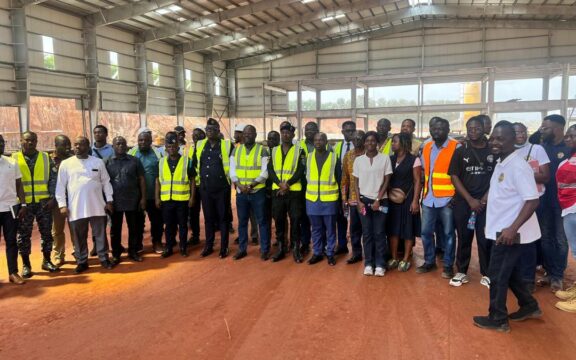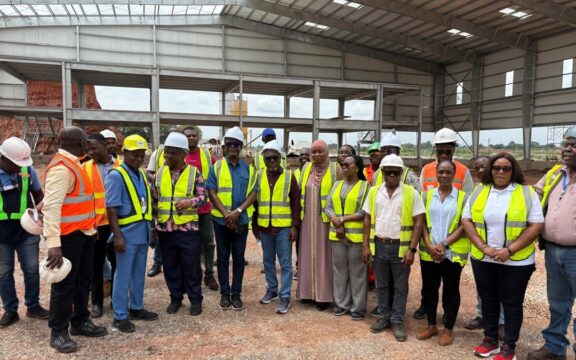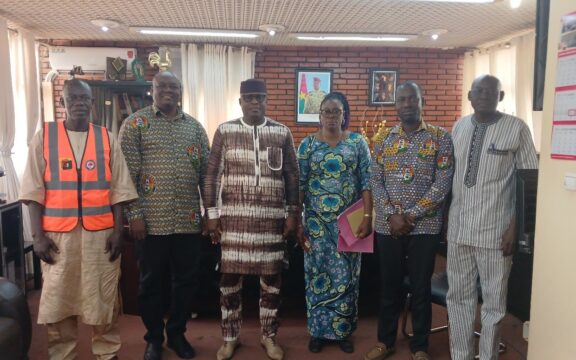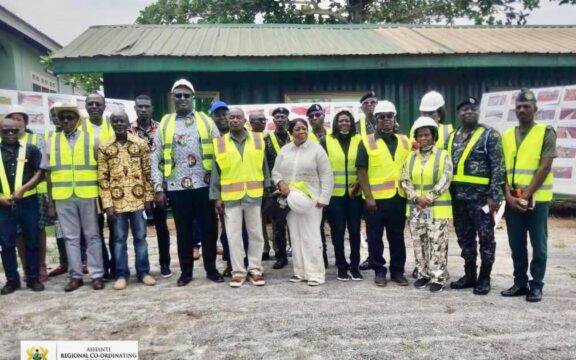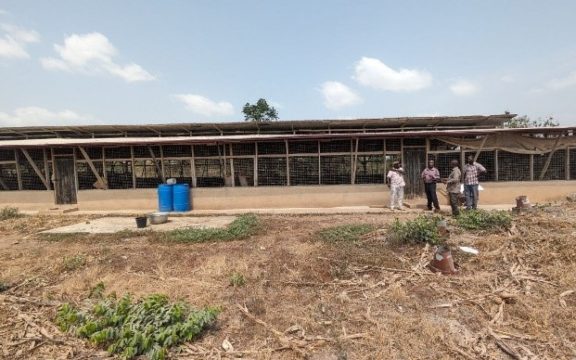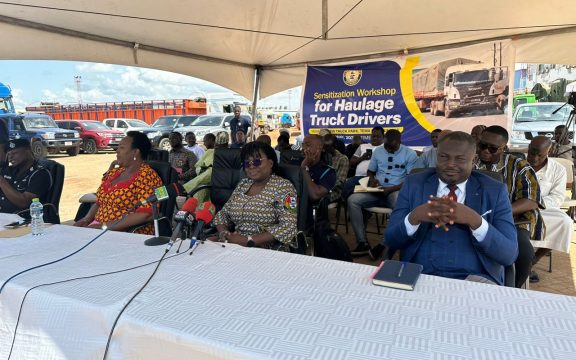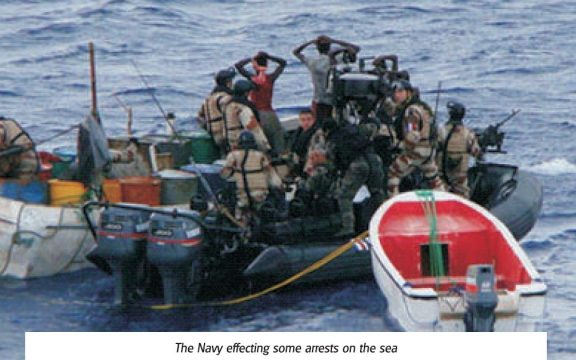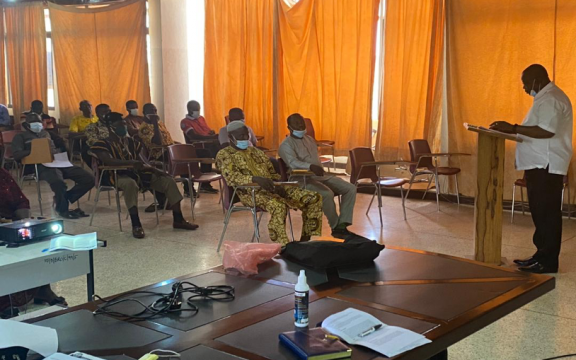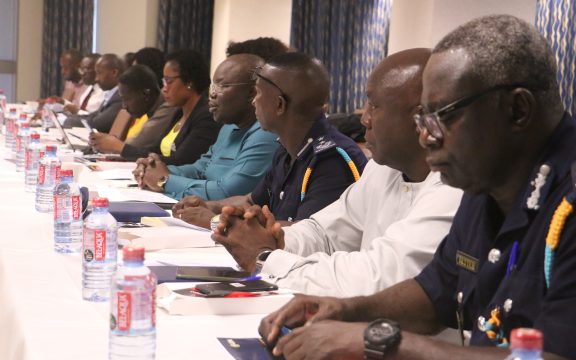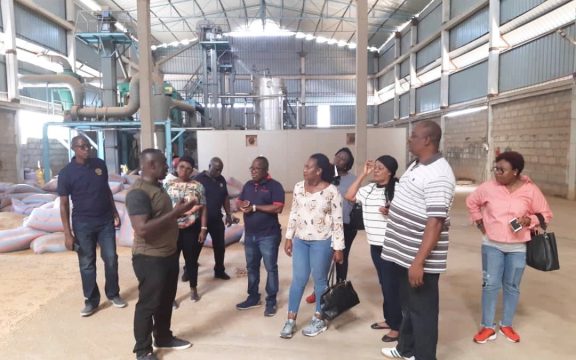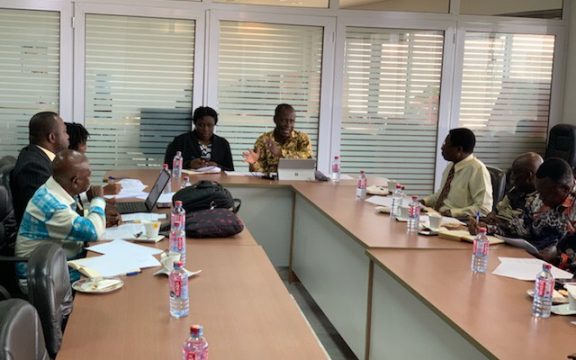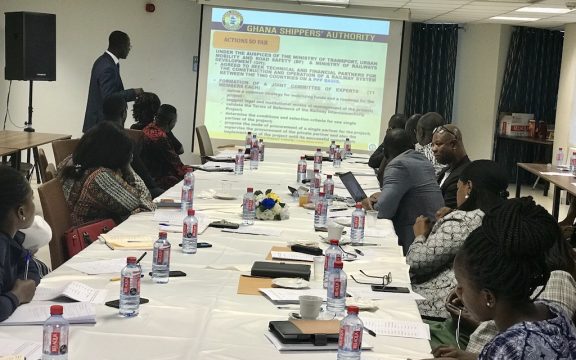Despite its highly toxic nature, hazardous materials which in most cases are highly poisonous and harmful to humans and properties, and the environment at large, are often transported on road as cargo. These materials include petroleum products, paints, various pressured gases, refuse, industrial chemicals, explosives (for mines and quarries), radioactive equipment and materials, industrial wastes, pesticides and weedicides among others. The rate of road accidents involving hazardous materials on Ghana’s transit corridor appears to be relatively low. This implies that stakeholders involved in the transportation of hazardous cargo often adhere to a high level of safety consciousness in their operations.
One such transport entity is SLT Logistics Limited. SLT Logistics Limited is a household name not only in Ghana but on the continent when it comes to the transportation of dangerous substances (chemicals) and materials to mining firms.

Safety is Key in SLT Logistics Operations
To underline the level of seriousness attached to safety precautions on the road, the company developed a pre-delivery plan for timely delivery. This includes checking;
i. to confirm beyond reasonable doubt that all trucks are fit for purpose before they are dispatched.
ii. the availability of emergency equipment on the trucks before departure.
iii. to ensure that border agents are alerted of the arrival of the trucks ahead of time, hence ensuring that less than 24 hours are spent at border crossings.
SLT Logistics has its own fleet of Heavy and Light Duty vehicles including trucks, trailers, Vans and Pick-ups. The company has at its disposal third Party Trucks that it utilizes occasionally. Management of the company ensures that personnel from the technical department like mechanics, accompany each cross-border delivery.

Human resource capital is of utmost importance to the company. SLT Logistics Limited can boast of well-trained, responsive and dedicated truck drivers making it one of the continent’s safest and most reliable transporters of dangerous cargo. SLT delivers these services to various sectors particularly all the mining companies in the country as well as Burkina Faso, Cote d’Ivoire, Mali and Guinea.
SLT Logistics Limited is a member of the Ghana Institute of Freight Forwarders, Association of Ghana Industries, Ghana Chamber of Commerce, JC Trans Logistics Network, Majestic Global Logistics Network and United Oceans Lines.
The Inspiration Behind the Name – SLT Logistics
The desire to set up a unique logistics company was a dream of the Chief Executive Officer (CEO), Mr. Kwesi Bensti Wilson, popularly known as K.B Wilson. In October 2015, Mr. Wilson resigned from his position as the Supply Chain Manager of a Mining Company to pursue this vision.
The next challenge was getting a name for the newly established company. Mr. K.B. Wilson explained the inspiration behind the name of his company to the Shipping Review saying: “The idea of a name struck me when I was under the shower preparing to visit my mother at Saltpond. I quickly came out of the shower and wrote down ‘Salt’ from the word ‘Saltpond’. The ‘a’ in the ‘Salt’ was removed leaving the acronym “SLT”. By adding Logistics to it, the name of the new company came out, ‘SLT Logistics’. SLT later became the perfect acronym for the company’s values being SERVICE, LOYALTY AND TRUST”.
The Challenges
The various global challenges experienced since 2020 have undoubtedly impacted every aspect of commerce, and SLT Logistics has not been an exception. According to Mr. Wilson, the adverse impact of these challenges affected the sales volumes of the company’s clients, leading to less logistics support demand by SLT as agents.
Recommendations
Improvements in infrastructural development is the main concern for SLT Logistics Limited. Mr. K.B. Wilson, therefore, recommended that “government should invest in improving infrastructure to enable stakeholders to enhance transit cargo operations. These include extending the rail lines to the Northern part of Ghana, construction of more freight parks as well as inland ports”. This, he said will augment existing ones such as the Elubo Freight Park and the Boankra Integrated Logistics Terminal (BILT).
He also suggested that the construction of additional freight parks will among other things provide an avenue for the haulage truck drivers to rest, re-fuel and complete all documentation in time before crossing the borders to neighbouring countries; while the inland ports will lead to a reduction in general transport costs on international cargo to importers and exporters from the middle and northern parts of Ghana, including the Sahel sub- region. It will also help to ease the congestion at the Tema and Takoradi ports, and facilitate the provision of up-to-date infrastructure to meet current developments and technological changes in the shipping industry.
2023: Job Creation in the Air Cargo Industry – An Agenda for the IATA.
There have been numerous calls for African governments to put in place relief measures to protect jobs in the Aviation sector as the impacts of the Covid-19 pandemic deepen.
At the peak of the Covid-19 pandemic which begun in 2020, the International Air Transport Association (IATA) estimated that airlines operating in Africa could lose $6 billion of passenger and cargo revenue compared to the previous year. The IATA also projected an increase in job losses in the aviation and related industries by more than 3 million; that is half of the continent’s 6.2 million aviation-related employment, with the preceding year’s estimate pegged at two (2) million.
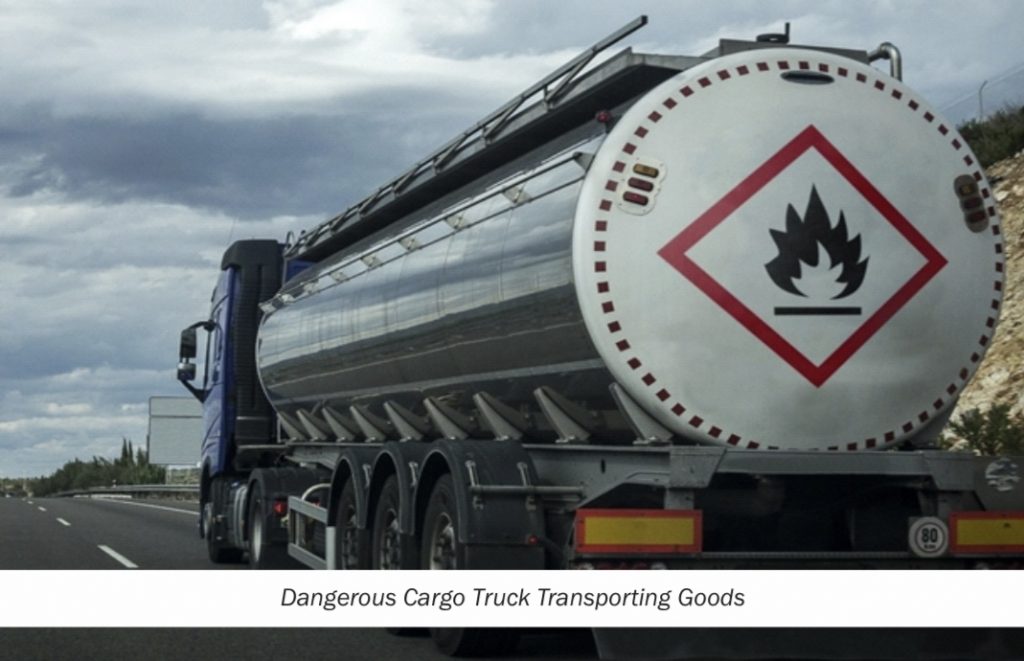
The cancellation of passenger flights as a result of the Covid-19 pandemic also affected the operations of cargo airlines as very few ground handlers were available to perform crucial services at the airports. These sentiments were re-echoed at the World Cargo Symposium held in London in September 2022.
The 2022 World Cargo Symposium
The World Cargo Symposium (WCS) is the largest and most prestigious annual event on the calendar for stakeholders in the aviation sector. The 2022 World Cargo Symposium held in London from 27th – 29th September gave an accurate reflection of current happenings in the air cargo industry since the onslaught of Covid-19. It featured plenary sessions, specialized streams, workshops, executive summits, and aspects of Technology & Innovation, Security & Customs, Cargo Operations and Sustainability.
Employment – IATA’s Priority for The Air Cargo Industry In 2023
The Global Head of Cargo at the IATA, Brendan Sullivan enumerated four (4) issues of concern to the Association, where they intend to intensify efforts to build resilience and thereby strengthen the post-pandemic prospects for air cargo. In his speech at the World Cargo Symposium, Mr. Sullivan said that the IATA’s focus for 2023 are;
- Achieve net zero carbon emissions by 2050
- Continue to modernize processes
- Find better solutions to safely carry lithium batteries
- Make air cargo attractive to new talent. (Employment)
The human resource of industries like the air cargo sector forms the core of any improvements they can achieve. Without human resource it will be near impossible to reach new heights or sustain any significant achievements made in the past. This is why many have sounded the alarm, especially as the thousands who lost their jobs during the pandemic were cargo handlers.
Also of concern is the bureaucracy involved in the recruitment of personnel in the air cargo industry. It makes the industry unattractive to the emerging workforce. Perhaps the IATA’s Global Head of Cargo, Brendan Sullivan summarized the situation better in his speech at the World Cargo Symposium when he said “We are now competing for talent in a very tight job market. And when we do find the right and willing talent, training and longer-than-usual security clearance processes delay their entry into the workforce.”
RECOMMENDATIONS
In view of the challenges affecting the recruitment of qualified and willing workforce into the air cargo industry, governments need to institute measures to quicken the clearance processes, including those for security, as a short-term solution.
In the long term, countries need to enact policies to attract, maintain and retain critical human resource personnel in the sector.
There is also the need to create equal opportunities for females in the industry. It is for this reason that air cargo carriers are encouraged to sign on to initiative and also work to make it thrive.




